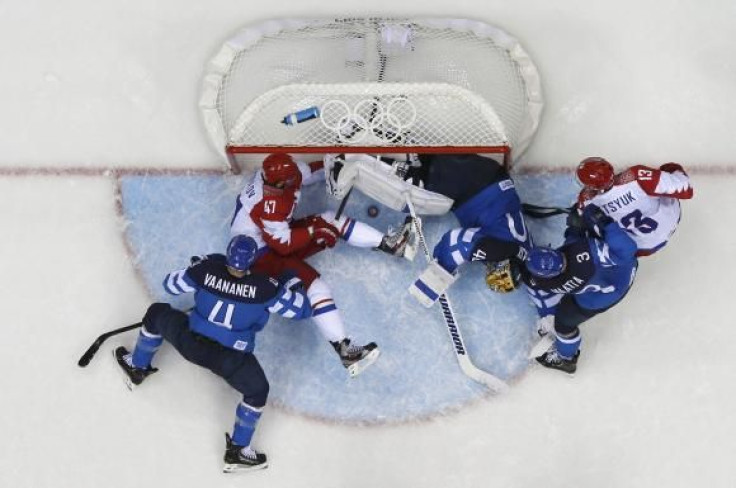The Importance Of Finland’s Olympic Ice Hockey Victory Over Russia

Reading the recent sports headlines, you might have asked: Just who did beat the Russians in the men's ice hockey elimination round at the 2014 Winter Olympics in Sochi? Often you had to slog through the first paragraph (or more) to learn the victors were the Finnish national ice hockey team, the Lions (the Leijonat in their language). What the usual sports stories won’t tell you is that this victory runs deeper than mere sports for the Finns – since they’ve had a longstanding resentment of the Russian bear.
One Finnish newspaper described the win as “having beaten the foe from across the eastern border.” The Helsinki Times described it as “Team Finland battled gallantly to claim a hard-earned victory over hosts Russia.”
Does this sound like an ordinary hockey game to you?
To understand the roots of the Finns’ resentment, we need to look at a bit of history. From the 12th to the very early 19th century, Finland was part of Sweden, and the indigenous Finns struggled to preserve their native language and customs. And as any Finn will tell you, when the Swedes landed in what is now Delaware and the Philadelphia suburbs in 1638 to found their New Sweden colony, the men actually doing the work inside the ship and on the land were Finns. (Similar to the Jamestown Colony experience in Virginia, when within a year of its 1607 founding, the English gentlemen colonists brought in the Poles and Dutch to do the real work.)
In 1809, Imperial Russia ended Swedish control through conquest during the Napoleonic Wars, and Finland became a grand duchy under the czar. The chaos of "Red October" (the Bolshevik Revolution in 1917) gave the Finns a chance to break away from Russia and they did. That’s right: Finland has been an independent nation for less than 100 years.
In 1939, a mere 22 years after Red October, the Soviets struck back at Finland to reclaim land that had been part of the grand duchy – and to put more distance between the Finnish border and Leningrad. After a heroic defense and an uneasy alliance with Nazi Germany, repeated World War II battles with the Soviets finally forced Finland to make territorial concessions along its eastern border, giving up about nearly 150,000 square miles of territory. The most controversial of these (from the Finnish point of view) was a large portion of an area known as Karelia in the southeast.
For example, the Finnish national epic poem, the Kalevala, was written in the 19th century and is based upon Finnish and Karelian oral folklore. A factor in the poem’s importance in Finland’s history was that it was written in the Finnish language, and not in Swedish or Russian.
Dog fanciers may have heard of the Karelian Bear Dog – a dog bred by the Finns to protect humans and farm animals from bears in …Karelia.
One of the most popular tunes in Finland (and the country’s unofficial national anthem) is the Säkkijärvi polka. The first line of the lyrics read: “It is a beautiful memorial to the Karelian country.” And lest you think this polka is loved only by blue-haired little old Finn ladies, check out this YouTube video by Finland’s oddball punk band, the Leningrad Cowboys.
So that win over Russia was a big thing psychologically for the Finns. Unfortunately for them, the party’s over in Helsinki, as they lost to Sweden (their original and longer colonizer) Friday by one point.
Next up for the Leijonat is Saturday’s match against the USA or Canada for the bronze medal. If they succeed, no doubt the Finns will rejoice (and play that polka all night).
Their victory, however, will lack that special tang that comes from winning a longtime grudge match. But their win against Russia might just give the Finns the impetus to improve their performance in the next Winter Olympics. That will be worth watching – and now you know why.
Joanne Butler is a graduate of the Kennedy School of Government at Harvard University and a former professional Republican staff member at the U.S. House of Representatives Ways and Means Committee.
© Copyright IBTimes 2024. All rights reserved.











